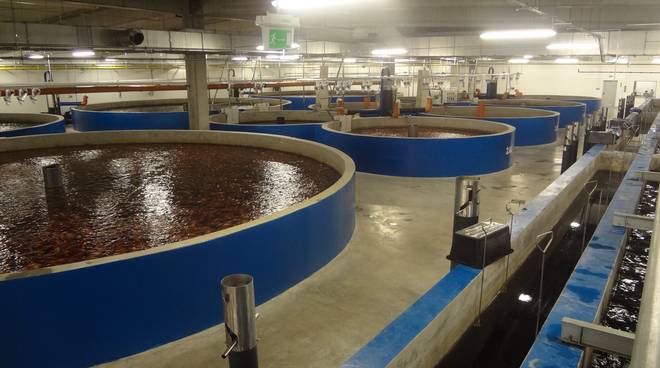
A comprehensive study on the potential of land based fish farming strongly supports investment in new facilities for the freshwater portion of salmon production.
Recirculation (RAS) systems provide opportunities for larger year-round smolt supply for finishing at sea to give competitive edge to Irish industry. However, there are a number of biological as well as financial issues in extending RAS to the full fish lifecycle, which at present renders this technology non-viable under Irish conditions.
Land-based farming of fish has been carried on for thousands of years but new technology to recycle water in closed containment units has sparked new interest in farming fish in tank systems on shore.
Members of IFA and investors interested in this area of business have been seeking more information from the Association on the potential of this type of farming in Ireland. Until now there has been no scientific or economic appraisal of the benefits, costs or potential of land based salmon farming in Ireland.
Commenting on the paper, IFA Aquaculture Executive, Richie Flynn said, “We can now say with confidence, having heard the same messages recently in Norway from companies like AKVA, Deloitte and Grieg, that there is a clear advantage for the industry to concentrate efforts with land based RAS on the freshwater part of the life cycle up to smolt stage.
"Going further to suggest the salmon can spend its whole life on land must take into account that the end result would be a very different product and the cost to farm it would take of €33.1 million in capital investment for every 5000 tonne unit. To expand to 38,000 annual output in Ireland as envisaged in government policy, we would need to invest over €200 million without any hope of a return on capital for over a decade – that is with all things going absolutely perfectly and the current record salmon prices staying stable for an unbelievably long period.”
In 2014, IFA Aquaculture asked one of the world experts in the area of recirculation and land based farming, Mr Ivar Warrer Hansen to produce an independent report for our members to address the following: “What are the technical requirements, capital and running costs involved in a 2,000 tonne p.a. salmon farm in a sea-water recirculation unit producing 4.5kg average weight fish.” Mr Warrer Hansen was asked to include relevant topical issues including the currently most technically feasible RAS units, the cost in Ireland of construction, abstraction, energy etc associated with producing the equivalent of current Irish output (c. 15,000 tonnes). ISGA also asked for an update on the development of RAS worldwide and the commercial success of farming in other countries.
The resulting report is a comprehensive response to these questions and the research and conclusions it contains provide a valuable and highly relevant addition to knowledge of a potentially valuable area of food production in Ireland. It should provide a basis for decision making and strategic thinking for industry, regulators, legislators and customers of the Irish farmed salmon industry.
